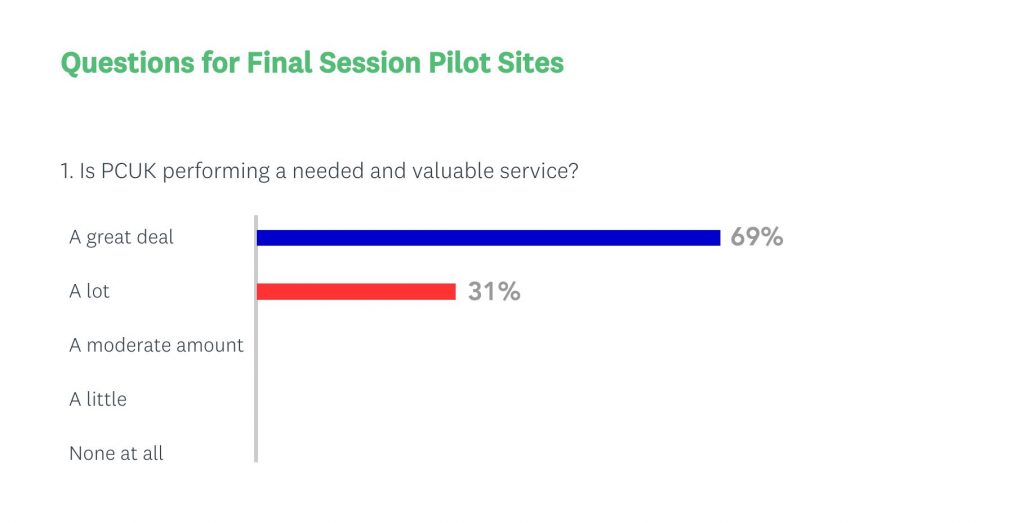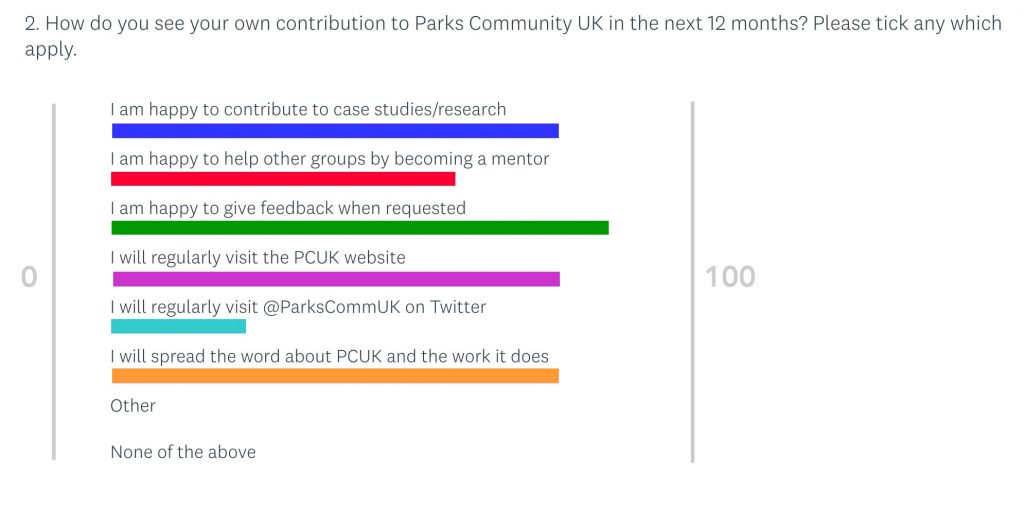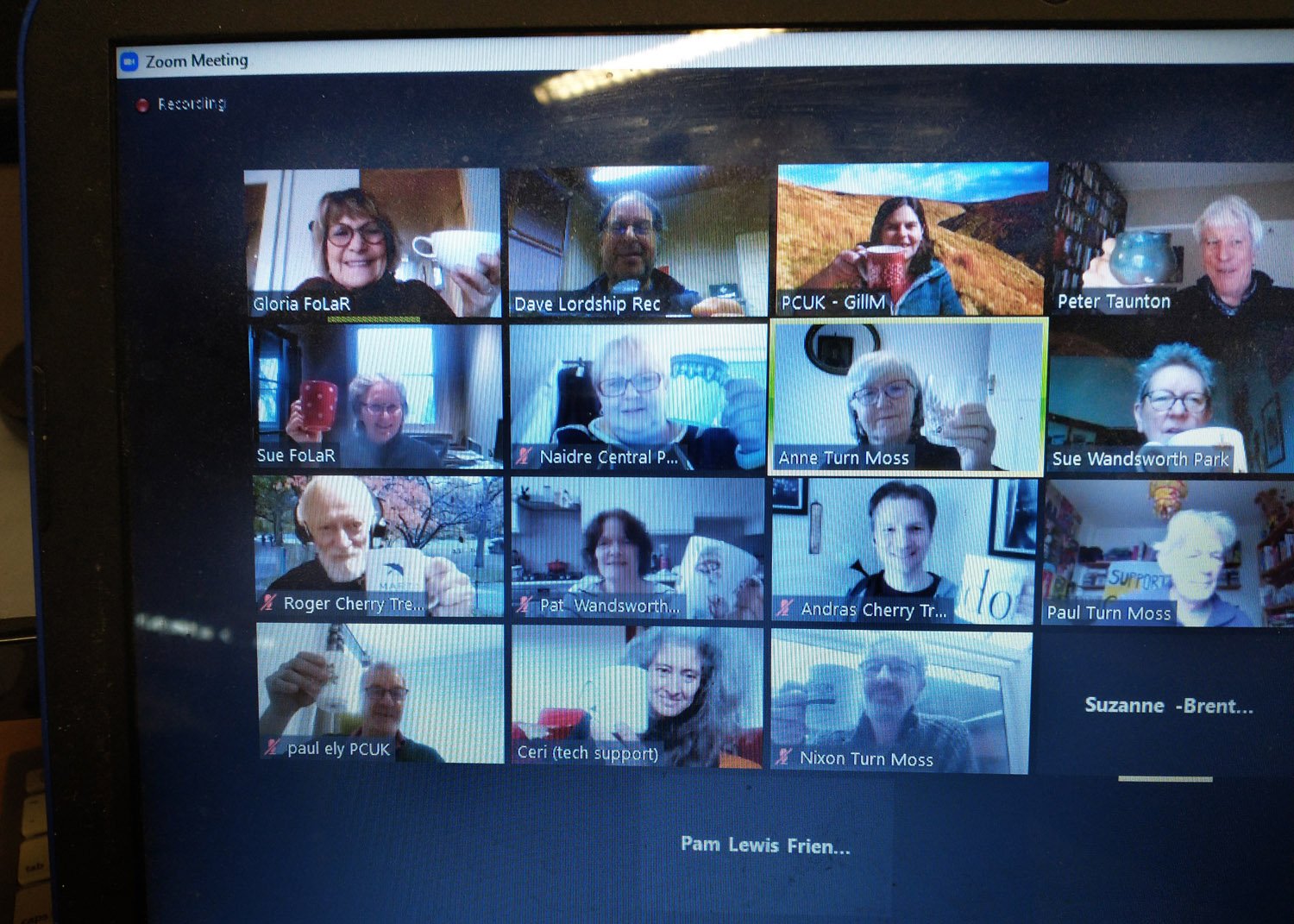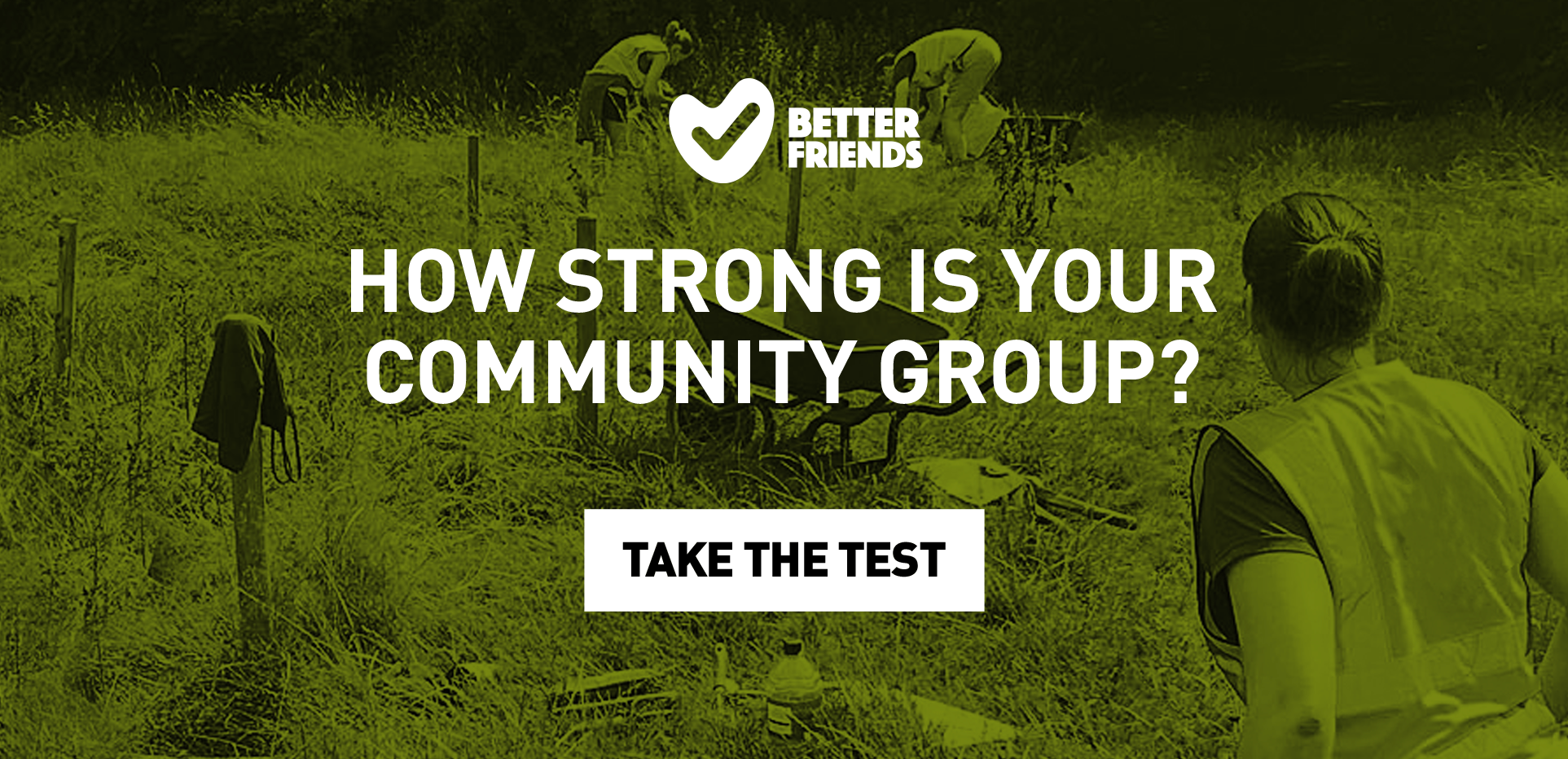At the end of last year (Dec 12, 2020) we held a sign-off event with all the Friends and volunteer groups who worked with us on the NESTA “Re-thinking Parks” PCUK project 2018-2020.
We were delighted to have representatives from eight pilot sites attend alongside project co-ordinators Friends of Lordship Rec:
- Friends of Wandsworth Park – a Grade II listed park on the banks of the River Thames in Putney, London
- Friends of Turn Moss – playing fields in Trafford, South Manchester
- Meadow Orchard – a volunteer-manged community garden, orchard and wildlife meadow. Sited on land gifted to the community behind Hornsey Health Centre in Crouch End, London
- Friends of Woodcock Park – park with extensive community amenities featuring rare trees and wildflowers; bisected by Wealdstone Brook
- Friends of Cherry Tree Wood – a Barnet owned slice of ancient woodland in East Finchley North London. The Friends Group is a registered charity.
- Friends of Latchmere Rec (FoLaR) – 9 acres of recreational green space in close to Richmond Park, London in the borough of Kingston
- Friends of Central Park – popular Green Flag public park in Peterborough
- Dukes Meadows Trust – volunteers run the Trust and oversee the beautiful thriving riverside park which is home to artist studios and a regular food market
The aim was to discuss the contribution of the individual groups and we hear their feedback on participating in the project. Each group completed a questionnaire prior to the event, this data will help PCUK understand the key challenges and ensure we can continue to support the Friends community in future.
We also looked at
- How COVID-19 impacted volunteers work in 2020
- Priorities for 2021
- What support would you look to PCUK for?
- Next steps for Parks Community UK once NESTA Rethinking Parks finishes
- Valuing contributions, celebrating success and keeping on keeping on in these challenging times.
SLIDESHOW ONE: FEEDBACK FROM PILOT SITES
The full slideshow featuring all the questionnaire results can be viewed here.
Here are a few insights:
- Groups spend most time on nature conservation and strengthening community cohesion
- Are very welcoming to new volunteers, members and fresh ideas
- The most common stakeholder relationship is with the site contractor and a high proportion also liaise with the parks service, sports clubs and local Councillors
- Regularity of site maintenance/repairs has slightly improved in the last 12 months.
- Average annual funding generated by groups is £7K
- All groups reported their effectiveness and progress had improved during their participation on the NESTA “Rethinking Parks” project with Parks Community UK
SOME FEEDBACK FROM THE GROUPS
Increased effectiveness
“We found the experience of interacting with other groups and PCUK to be a very valuable experience. We did acquire new valuable tips and advice.”
“We have been given the tools and wherewithal through our involvement with PCUK. We are also, now, offering advice and help to other Friends of groups in our area who are struggling and asking for guidance.”
The Parks Community UK website
“Great resource, attractive, simple and clear. Easy to find information. Inspiring!”
“So useful for anyone starting out. It would have helped us hugely.”
Benefits from participating in the project
“The first interview was very useful because although it was lots of questions, it widened our view of what a friends group could be. Having this wider perspective does inform our activities. The questionnaires consolidate it…we’ll miss them. We can always do the health checker!”
“Confidence – we now have the belief that we can achieve anything we set out to do.”
Final Thoughts
“Without mentoring we may have eventually focused on a management plan but possibly at a much later date. Advice has been critical to us getting to the stage we are at.”
“Overall PCUK has been a great boost to our collective self esteem as a project. The chance to talk about our project made us value its
uniqueness even more.”“A way to maintain the linkages developed, probably through the website will be great but also developing mechanisms such as Borough and regional wide groupings which can physically meet post COVID will be essential.”
SLIDESHOW TWO – “Parks Community UK aims, progress and future plans”
The full slideshow can be viewed here we included a couple of live interactive votes, which allowed PCUK to understand what priorities we need to concentrate on in future to ensure we continue to offer relevant support to parks and green space volunteer groups.
The most popular requests were to facilitate some form of mentoring and to continue to keep the PCUK website updated with relevant How To guides and Case Studies. Groups showed a strong wish to learn new skills that would allow volunteers to continue to make a real difference.

We conducted a flash poll on whether the groups felt PCUK was performing a valuable and needed service. The results were comprehensive!

There was strong backing from the groups to continue working with us and to share best practice. Groups showed a willingness to help others and spread the word to other parks and green space volunteers about Parks Community UK and our role and resources.

As we wrapped up, we asked for a single word to sum up how the particpants were feeling.

We’ve uploaded the second half of the zoom workshop onto our YouTube channel. It is one hour long and includes both the slideshow presentations.
The aim of the Parks Community UK project was to discover and share best practice and to provide a support network, online knowledge hub and learning space to serve the needs of parks and green space Friends and volunteers. Alongside empowering groups to be able to deliver their aims, we also believe creating strong working relationships and partnerships are key to ensure sites and communities can be successful.
Future plans
The project officially ends in March 2021 and Parks Community UK will come under the umbrella of the National Federation of Parks and Green Spaces and we will work together to secure further funding. Our parks and green spaces can survive and thrive by utilising, enhancing and co-ordinating the passion, knowledge and skills of the communities who care deeply about their local sites.
Parks Community UK would like to thank all the groups for their help and participation throughout the two years of this project.




